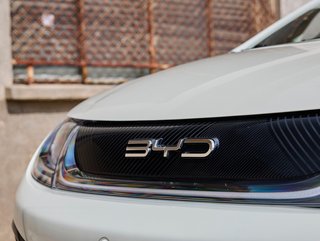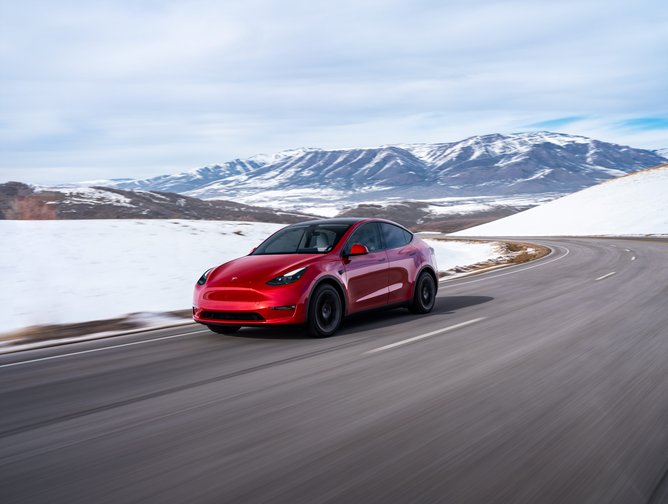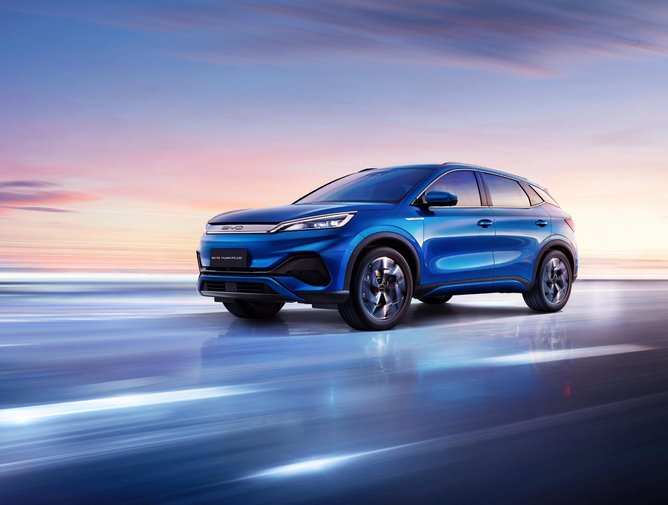How BYD has Beaten Tesla and Could Dominate Global EV Sales

Recent history is littered with the dinosaur skeletons of once dominant technology market leaders that failed because they never saw failure coming.
Take Kodak – the company synonymous with capturing photos on film. They actually invented the world’s first digital camera but refused to innovate and filed for bankruptcy in 2012.
Then there’s the once mighty Nokia – at one stage the bestselling mobile handsets in the world with their practical yet slick Scandinavian design. They refused to recognise the rise of the smartphone until it was too late and were soon dead in the water.
It’s almost unthinkable, but could Tesla be the next giant to fall?
Suggesting that may seem churlish at a time when the Texas-based manufacturer is beating all delivery expectations, and owns the bestselling EV in history (Model Y) – but you do get a sense that the company’s maestro Elon Musk may have taken his eye off the ball.
Tesla sold 484,507 vehicles in Q4 – up 20% on the previous year and ahead of market expectations, and was also the top-selling EV brand for 2023.
But something significant happened. Tesla lost its top position in Q4 sales to Chinese company BYD.
And here’s the thing. Tesla’s profits fell by 44% in Q3 2023 compared to 2022, fuelled in part by several price cuts to keep their cars competitive in an increasingly crowded EV market.

BYD, China’s biggest automotive brand, saw profits hike 200% in the first half of 2023 to US$1.5 billion.
Tesla is being squeezed and struggling to retain margin due to those price cuts, which amounted to a huge 25% in 2023 in the United States market.
That is one reason why Tesla is looking to expand production overseas, including a US$2 billion factory in India.
However, there are hurdles to overcome, as Tesla is putting pressure on the Indian government to slash its import duty on EVs to 15% compared to the current 100% for cars priced over US$40,000. Tesla’s entry level Model 3 starts at more than US$41,000 so sits above that threshold.
In comparison, BYD’s bestselling Yuan Plus has shifted more than half a million units thanks to a price tag under US$20,000. BYD also launched the Seagull in April 2023, costing just US$11,000.
But it’s important to not just look at the price. After all, Nokia phones did not get discarded to the back of the kitchen drawer because they were more expensive than Apple’s iPhone.

China is the world’s biggest EV market
Tesla cars have a certain kudos and they made electric cars sexy (a deliberate move by Musk who named his models S, 3, X, and Y). They are aspirational, offer a great customer experience, and are backed with a fast-charging network that makes them more appealing than other brands in certain markets.
BYD has one big advantage – it is Chinese. Cars can be built at lower costs and the size of the market means it is also growing in expertise and innovation. That’s one reason why Tesla (as well as Polestar, Volvo, BMW and DACIA) all have cars built in China for export.
According to analysis from Canalys, Mainland China was the biggest EV market in the first half of 2023, accounting for 55% of global sales, and 3.4 million units. Europe is the second largest market, accounting for 24% of sales.
But it has not all been good news for Chinese EV manufacturers, with the government’s support scheme ending and a price war breaking out among competitors.
“While a huge choice of EVs is available in China, no single model has over 10% market share. BYD is the leading EV brand in China, but the Tesla-led price war has been challenging for smaller brands,” said Canalys Principal Analyst Jason Low.
“Price wars have caused more automakers to focus on cost reduction, but excessive emphasis on cost reduction can lead to decreased investment in new technology.
“With electrification and smart technologies, automobiles have transitioned from mature industrial products to continuously iterative technological products. As a result, automakers must rapidly improve their software and hardware capabilities, establish intelligent ecosystems related to automobiles, and cultivate new brand cultures and automotive concepts.”
BYD has plenty of concepts that it has turned into tech reality. How about the Yangwang U8 SUV that can not only float but also sail and steer across a river (and stay dry inside for up to 30 minutes), or the U9 supercar that can drive on just three wheels?
Transforming cars into consumer technology devices
This is where it gets interesting – the convergence of consumer technology with mobility, turning cars into convenient consumer devices.
BYD seems to have spotted an opportunity, agreeing a deal to buy US-based Jabil’s mobile electronics manufacturing business in China for US$2.2 billion.
Could this be part of a strategy to incorporate more smartphone-style technology into BYD’s vehicles? Let’s not forget that BYD has history in this regard – it started as an electronic components firm, supplying the likes of Apple.
There is another factor that gives BYD an edge. The company makes its own batteries. Not only that, it is the world’s leading producer of rechargeable batteries and owns the complete supply chain layout from mineral battery cells to battery packs.
Tesla does not make its own batteries. Currently its main supplier is Panasonic from Japan, and LG Energy Solutions from South Korea. China’s CATL also supplies batteries to Tesla, and there are reports (from Germany’s TeslaMag) that some Tesla models are powered by batteries from BYD.
BYD building EV factories in Thailand, Brazil, Hungary
BYD is also expanding production overseas with a factory being built in Thailand that will begin production this summer, and an EV plant announced in Brazil. In December 2023, BYD also announced a key passenger EV plant in Hungary, allowing BYD to take advantage of subsidies in the EU. France, for instance, has just ended subsidies on EVs made outside of Europe. That impacts BYD but not Tesla, which builds the Model Y in Berlin. However, this would impact the Model 3 that is made in China.
The market is constantly evolving, subsidies (in Germany) and government support (in China) being removed, but one thing is for certain – BYD sold more EVs than Tesla for the first time.
With the benefit of economies of scale, industry expertise, control over its supply chain, global production capability, and a wide range of models catering to more types of consumers, plus unbeatable prices, it seems the road ahead is clear for BYD to race even further ahead.
What that means for Tesla is yet to be seen, and you cannot deny the fact that sales are at a record high for the more upmarket brand too, and it still sold more units than BYD over the entire 2023.
What is good news from a sustainability perspective is the direction of travel when it comes to EV adoption, and increased competition and lower cost of ownership can only tip more consumers to ditch






